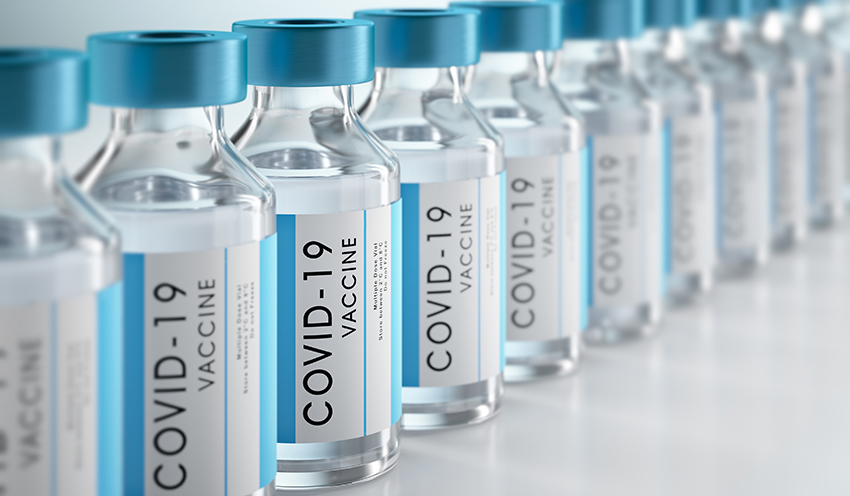
According to the Centers for Disease Control and Prevention (CDC), health equity is “achieved when every person has the opportunity to attain his or her full health potential and no one is disadvantaged from achieving this potential because of social position or other socially determined circumstances.”1 Social determinants of health include factors such as having access to health care, appropriate housing, quality education, and fair pay, to name a few.2 Ensuring health equity has been the focus of public health efforts for decades and, even though many strides have been achieved, many have yet to be realized. Public health efforts focused on alleviating health disparities among vulnerable populations often work with private as well as public sectors and various political parties to find resources and solutions to very complicated problems.
In the midst of dealing with a heaping mountain of existing public health challenges, we were hit with a pandemic. In the United States alone, the COVID-19 pandemic has affected more than 26 million people and claimed the lives of more than 460,000.3 The numbers worldwide are even more overwhelming. This pandemic has lasted for a year now, and there is no clear end in sight. To make matters worse, conflicting information about the pandemic, its dangers, and how it should be handled has caused further confusion. As a result, we have a disease that is not only spreading, but also mutating. There is, however, a glimmer of hope: the COVID-19 vaccines are here! Not just from one company, but two (with many more in the works), with an efficacy ranging from 94-95%. Unfortunately, however, the news has not been met with rejoicing on all fronts.
Setting aside the logistical issues associated with the vaccine such as storage requirements (must be stored in a freezer or be viable for a limited number of days in a fridge), administration (requires several doses and different brands require different interval period between doses), and the observation period of fifteen minutes after, the greatest obstacle to the vaccine roll out has been and will be the people it is trying to save. First of all, some healthcare workers are reluctant to take the vaccine, causing an already skeptical population to have a greater degree of distrust of the vaccine.4 Secondly, some people are trying to deter others from taking the vaccine, not just by posting on social media and telling their friends and family, but in one incidence by blocking the entrance to a vaccination site and forcing it to close down.5 You can exercise your right to choose to not be vaccinated, but what gives you the right to take away other’s right to be vaccinated? The protestors were urging those in line to not take the vaccine, claiming that it is dangerous and that the virus is not real.
The truth is lost and so are the people. How did we get here? It is truly disconcerting. The great distrust in our medical system is alarming. The fact that a healthcare worker in Wisconsin purposefully destroyed five hundred doses of the vaccine is mind boggling.6 His reasons for doing so were not disclosed but can be assumed. Maybe he, too, thought the vaccine was dangerous. A question that keeps coming up in many conversations I have had with my colleagues and acquaintances is, “How do you know the long term effects of the vaccine?” To that, I always answer, “Take a look at the list of side effects on any over the counter medications you have in your medicine cabinet and then let’s talk about the vaccine. Let’s look at the viciousness by which this disease has claimed the lives of hundreds of thousands of people just here in the US, and then let’s talk about the vaccine.”
The problem, however, is much bigger than any rational reasoning one can use when engaged in this kind of conversation. The issue needs clearly communicated facts, transparency from the government and the medical community, and coordinated collaboration among multiple sectors. If an emergency such as a pandemic cannot bring these folks together to work effectively, what hope do we have for improving public health and achieving health equity?
Author bio

Rasha Abdrabou, DrPH, MPH
Dr. Abdrabou is the Program Review and Assessment Director for the School of Allied Health Professions as well as the Director of Education Assessment for the Department of Physician Assistant Sciences. She is also an Assistant Professor for the department. Her research interests include the opioid crisis and its implications for different populations, food insecurity and health policies on the quality of our food
References:
- https://www.cdc.gov/chronicdisease/healthequity/index.htm
- https://www.healthypeople.gov/2020/topics-objectives/topic/social-determinants-of-health
- https://covid.cdc.gov/covid-data-tracker/#cases_casesper100klast7days
- Why California’s early COVID vaccine rollout was chaotic - Los Angeles Times (latimes.com)
- Anti-vaccine protesters temporarily shut down COVID-19 vaccine site | Fox News
- Worker fired after deliberately destroying 500 doses of COVID-19 vaccine (nypost.com)
